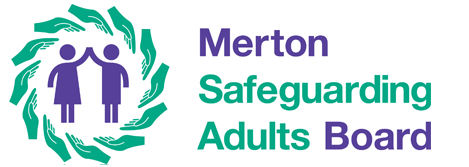Scams and Safety Advice
Scams are on the increase, and they affect everybody, not just the stereotypical ‘silly’ people you might think. Anyone can find themselves involved with a scammer, we talk to people from all different backgrounds and ages.
The scams circulating change often, though they all have one thing in common, and that is to panic you and make you take action immediately:
Avoid being rushed or pressured into making a decision, don’t believe an offer if it comes out of the blue. Be aware of adverts on social media, don’t give to a charity unless you have made the necessary checks with the Charities Commission and do not give out personal details (bank details, address, existing insurance/pensions/investment details).
If you think that you have been scammed, it is important that you report this. Do not feel embarrassed or ashamed to do so. Action Fraud is available to help on 0300 123 2040.
Trading Standards offer free talks to community groups across the borough to empower residents, helping them identify scams and stay safe. If you are interested in us visiting your group, please contact us on trading.standards@merton.gov.uk or 020 8545 3025
In recent years there has been substantial growth in the number of fires that we are attending involving lithium batteries in electric powered personal vehicles (EPPVs), such as e-bikes and e-scooters. Fires involving lithium batteries are the fastest growing fire risk in London.
In 2022, we attended 87 incidents for e-bikes and 29 incidents involving e-scooters. This is an increase compared to 2021 where we attended a total of 78 fires for both e-bikes and e-scooters and a substantial growth compared to 2017 where we attended two incidents for e-bikes and recorded no incidents for e-scooters.
 Protect your home with a simple check – that’s the message from London Fire Brigade this winter. It’s an expensive time of year, and you don’t want the cost of fire damage added to your bills.
Protect your home with a simple check – that’s the message from London Fire Brigade this winter. It’s an expensive time of year, and you don’t want the cost of fire damage added to your bills.
The Home Fire Safety Checker is a new tool created by London Fire Brigade and it’s designed to help you spot risks in your own home, or the home of anyone you’re worried
about.
The free tool asks a few simple questions about the household, and then guides you around each room in the home pointing out which hazards to look out for. You’re then provided with tailored advice and practical tips, which you can email to yourself, or the homeowner, to refer back to.
So please, check your own home, and then help a neighbour check theirs – you may well be surprised at what risks you’ve been overlooking for years.
You can find the free Home Fire Safety Checker by going to: London-fire.gov.uk/HFSC
 Fears over debt as more people could turn to loan sharks to cover Christmas
Fears over debt as more people could turn to loan sharks to cover Christmas
• Nearly one in ten people turned to loan sharks to cover the costs of Christmas last year.
• More than half of victims turned to illegal money lenders in order to pay for essentials such as utilities, food and fuel in the first half of 2022.
• New campaign #SleighNoToLoanSharks aims to protect communities from the devastating effects of illegal money lending in the run up to Christmas.
Experts have warned that unscrupulous lenders could try to cash in on the festive period as households struggle to cope with rising food, fuel and energy bills. Loan sharks are targeting vulnerable people seeking credit and trapping them into a cycle of debt with exorbitant interest rates and threats of violence.
A report published by the Centre for Social Justice estimated that 1.08 million people could already be in debt to an illegal money lender. This is over 700,000 more people than the most recent official estimate. Figures released by the England Illegal Money Lending Team (IMLT) show that nearly one in ten of those who borrowed money from loan sharks last year did so to cover the costs of Christmas. More than half of victims (52%) supported by the IMLT in the first half of 2022 had borrowed from a loan shark to pay for essentials such as food and fuel.
Loan sharks pose a dangerous threat to all communities. They charge exorbitant interest rates and target the most vulnerable with aggressive and exploitative practices. The impact of illegal money lending is severe and far-reaching, with devastating consequences for the mental health and wellbeing of those affected.
The figures come amid national warnings that the scale of household debt will continue to rise as financial pressures on households leaves many struggling to afford their monthly bills. The IMLT is working hard to combat the growth in illegal lending by focusing on prevention, awareness and enforcement activities.
A new social media campaign, #SleighNoToLoanSharks, is being launched to alert people about the dangers of using loan sharks and help prevent them from falling into their traps in the run up to Christmas. Tony Quigley, Head of the England Illegal Money Lending Team, said: “Loan sharks are doing untold damage in local communities, and we must do all we can to stop them. With their ruthless tactics, these predators are threatening vulnerable families, driving them deeper into debt, and pulling entire communities into an endless cycle of despair.
“At a time when families are under extreme cost pressures with mounting living costs, we are deeply concerned that those who are already struggling to make ends meet could be targeted by these predatory lenders.
“Our campaign aims to break this cycle by helping people understand the risks of loan sharks, what they can do if they feel threatened and where they can turn for help and support.
“The Stop Loan Sharks 24/7 Helpline offers confidential advice and support to anyone affected by illegal money lending. We know how stressful and
frightening this experience can be. We can give you support on how to deal with this problem and help find a way forward.”
 Follow these safety tips to protect yourself and loved ones from loan sharks:
Follow these safety tips to protect yourself and loved ones from loan sharks:
1. If you’re struggling to make ends meet and need cash fast, the thought of a loan shark might seem tempting, but remember these lenders are not your friends. Debt can quickly spiral out of control – it’s important to think carefully before taking out a loan and consider other options.
2. Never send money or give credit card, online account details or copies of personal documents to anyone you don’t know or trust. This information is valuable so make sure you protect it from criminals who can use it to find and stalk you, harass you or threaten those you love.
3. If you’re thinking about borrowing money, it’s important to check that your lender is genuine. Loan sharks operate illegally without the correct permission from the Financial Conduct Authority (FCA). Do your research first and check the firm or person you’re dealing with is listed on the Financial Services Register.
4. When exploitative loan sharks are preying on hardship, it’s vital for people to know there is an ethical, local, not-for-profit alternative available. Credit unions are a lifeline for many people, with their services helping members to save regularly, borrow responsibly and keep track of their finances. There are other community lenders who are mostly not for profit, and who reinvest any surpluses into serving vulnerable customers, which can be found on https://www.findingfinance.org.uk/
5. Getting trapped in a never-ending spiral of debt after borrowing from a loan shark can have devastating consequences, not only on your finances but also on most other aspects of your life, including your mental health, work and relationships with your family and friends. If you’re worried about a friend or family member, or if you need help yourself, Stop Loan Sharks can offer confidential advice and support.
Are you worried about a friend or family member who is being taken advantage of by a loan shark? Contact the Stop Loan Sharks 24/7 Helpline on 0300 555 2222 for support or visit www.stoploansharks.co.uk. Live Chat is available on the website between 9am and 5pm, Monday to Friday.
About the England Illegal Money Lending Team
The England Illegal Money Lending Team (IMLT) is a specialist unit with a remit to investigate and prosecute illegal money lenders – also known as loan sharks.
The team also provides specialist support to victims and communities affected by this crime.
Since its inception in 2004, the IMLT has written off nearly £90 million worth of illegal debt and helped 30,000 victims reclaim their lives.
The IMLT works with credit unions across the country to protect consumers from the predatory practices of loan sharks and help build stronger, more financially resilient communities.
 Don’t assume that the call is genuine. Phone numbers can be changed (spoofed) and are not proof of identity. If you don’t know who is calling hang up!
Don’t assume that the call is genuine. Phone numbers can be changed (spoofed) and are not proof of identity. If you don’t know who is calling hang up!- Don’t give out or confirm ANY details over the phone, especially your bank details.
- The police will never call and say they need help with an investigation or for you to confirm bank details.
- The bank will never ring you and ask you to transfer money to a new ‘safe’ account.
- Don’t ring numbers left on voicemails, check numbers of organisations independently.
- Many scammers now ask you to hang up and dial a number to ‘check’ they are genuine. Always ring a friend or family member first to make sure that the line is clear and always look up numbers independently from the internet or an old bill.
These can be reported to Action Fraud 0300 123 2040 www.actionfraud.police.uk

- Don’t assume an email, text or call is genuine
- Never click on the links provided in these emails/text messages. Always go to the organisations website/ App directly.
- Don’t make purchases over free Wi-Fi connections.
- Check accreditations and membership numbers listed on websites. Don’t take their word for it.
- Research the company before making a purchase. If they are scammers, you won’t be the first person to have been tempted.
- If an offer sounds too good to be true, it will be!
Scam emails can be forwarded to report@phishing.gov.uk and texts to 7726

- Don’t do business with anyone that knocks on your door.
- Remember they will be charming, don’t be deceived prices will quickly increase.
- Use a personal recommendation and get at least three quotes. Don’t choose the one that’s cheapest by a long way.
- If you find yourself dealing with a doorstep trader, be honest at the bank. They will help you and notify the police/us.
Encounters with Doorstep traders or for advice in general regarding scams or any other consumer issue please contact the Citizens Advice, Consumer Advice Line on 0808 2231133

Trading Standards are urging people to be on the alert for scams linked to the cost-of-living crisis. With the growing concern over energy bill prices, we want to avoid people wasting their limited resources on scammers.
Watch out for:
- Energy rebate offers – the £400 announced by the government will automatically be deducted from your bill over the next few months. You do not have to do anything! Don’t reply to calls, texts or emails asking for your details to ensure you receive it.
- Likewise, the £150 Disability Cost of living payment will be paid directly into their accounts, you do not have to do anything. Don’t respond to requests for you to register yourself for it.
- Watch out for doorstep callers or telephone offering to switch you to a cheaper tariff. Use a known comparison site or speak to your provider directly.
- Lots of people are selling ‘energy saving devices’, that claim to reduce the electricity used by other devices. Many of these have been found to be unsafe and have no energy saving properties. For energy saving tips visit: Quick tips to save energy at home – Energy Saving Trust
An investment scam is when scammers try to encourage people to put their money into schemes where they are told that they will get a lot of money
back. Unfortunately, they can be difficult to spot as they look like real investments. It is believed that investment scams have increased significantly since the outbreak of Covid-19 and it is important that residents are aware of this.
SPOT THE SIGNS
- A company cold calls you about an opportunity and repeatedly contacts you to follow this up
- The company does not talk about the risks involved in the investment or downplays these
- They promise you offers with returns that sound too good to be true
- They pressure you to make an investment and try and use special offers or deals to
encourage you to sign up
HOW TO AVOID SCAMS
- Ignore or hang up on cold calls
- The Financial Conduct Authority (FCA) has created a warning list online tool https://www.fca.org.uk/scamsmart/warning-list to help people identify scams
- The FCA also has a service register where you can check whether an investment company is registered: https://www.fca.org.uk/firms/financial-services-register
- Contact the Citizens Advice consumer
helpline for advice if you are worried about
whether an investment opportunity on 03454 04 05 06
